
If You've Done 15/21 of These Things, It's Time to Improve Your Cooking Skills
Do you consider yourself a whiz in the kitchen, or do your culinary creations often fall flat? Our fun and eye-opening quiz will reveal whether you're a seasoned chef or if it's time to sharpen those cooking skills.
Welcome to our cooking habits quiz! Whether you're a passionate home cook or someone who occasionally experiments in the kitchen, these 21 questions will help you identify habits that might sabotage your culinary creations.
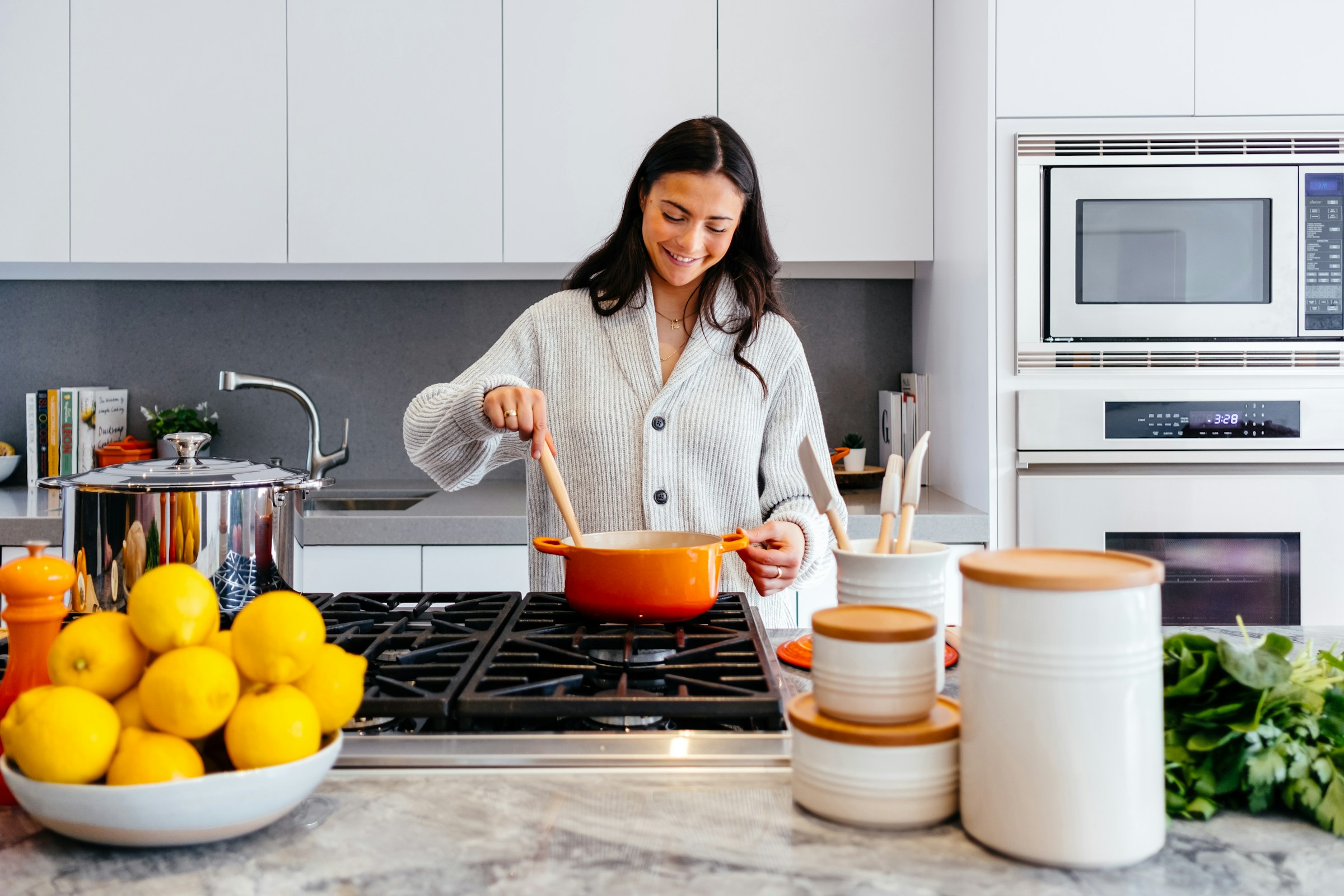
A woman cooking food | Source: Unsplash
So, grab a pen and paper, and let's dive into the world of cooking dos and don'ts. All you have to do is answer each question honestly with a "Yes" or "No," and write it down. You'll have to count them at the end of the quiz to know where you stand.
Remember, this quiz is all about learning and improving, so don't worry if you find yourself saying "Yes" more often than you'd like.
Ready? Let's begin!
Question #1: Have you ever started cooking pasta in water that wasn't boiling yet?
- Yes
- No
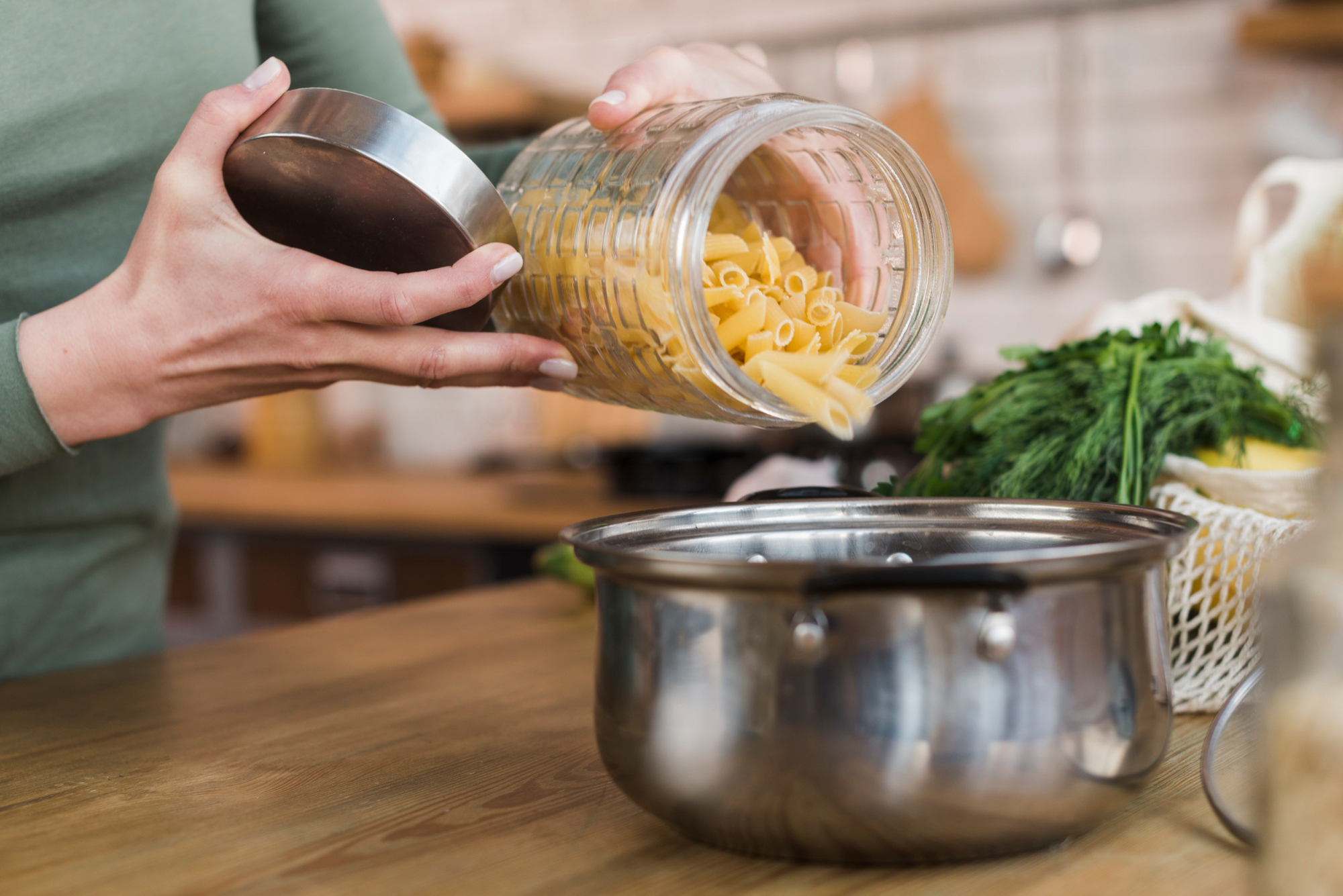
A woman pouring raw pasta in a pot | Source: Freepik
Pasta perfection starts with a rolling boil!
While it might be tempting to toss your noodles into tepid water, patience pays off here. Boiling water ensures even cooking and prevents your pasta from becoming a gummy mess. This is especially crucial for fresh pasta, as the intense heat helps it maintain its structure.
Question #2: Have you ever opened the oven door to check on something that was baking?
- Yes
- No
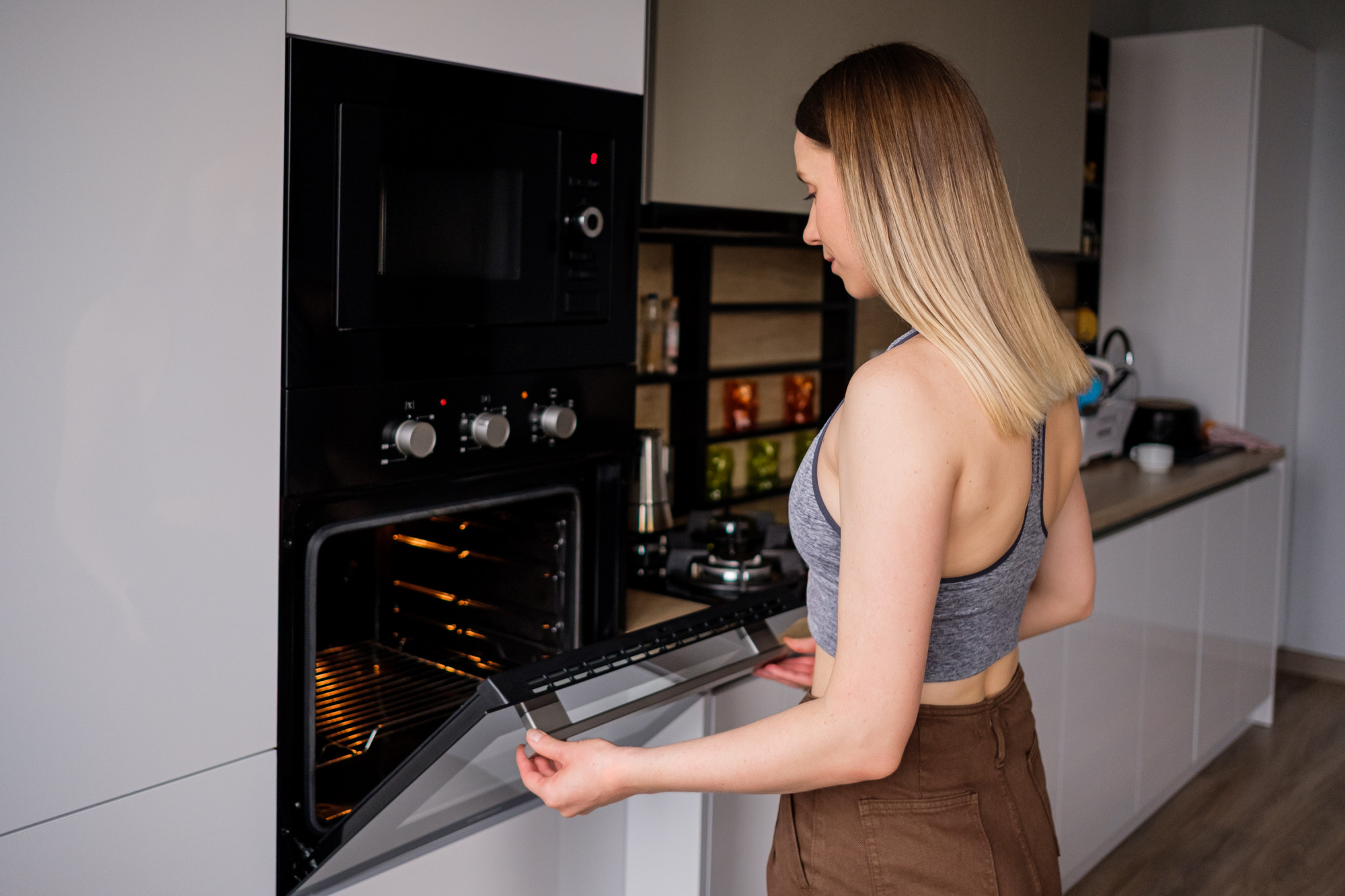
A woman opening an oven door | Source: Freepik
Opening the oven door might satisfy your curiosity, but it can wreak havoc on your baked goods. That blast of cooler air can cause temperature fluctuations, leading to uneven baking and potentially deflating your beautiful cakes or cookies.
Instead, use your oven light and window to monitor progress. If you need to check for doneness, wait until the last few minutes and use a toothpick test.
Question #3: Have you ever baked something without preheating the oven?
- Yes
- No
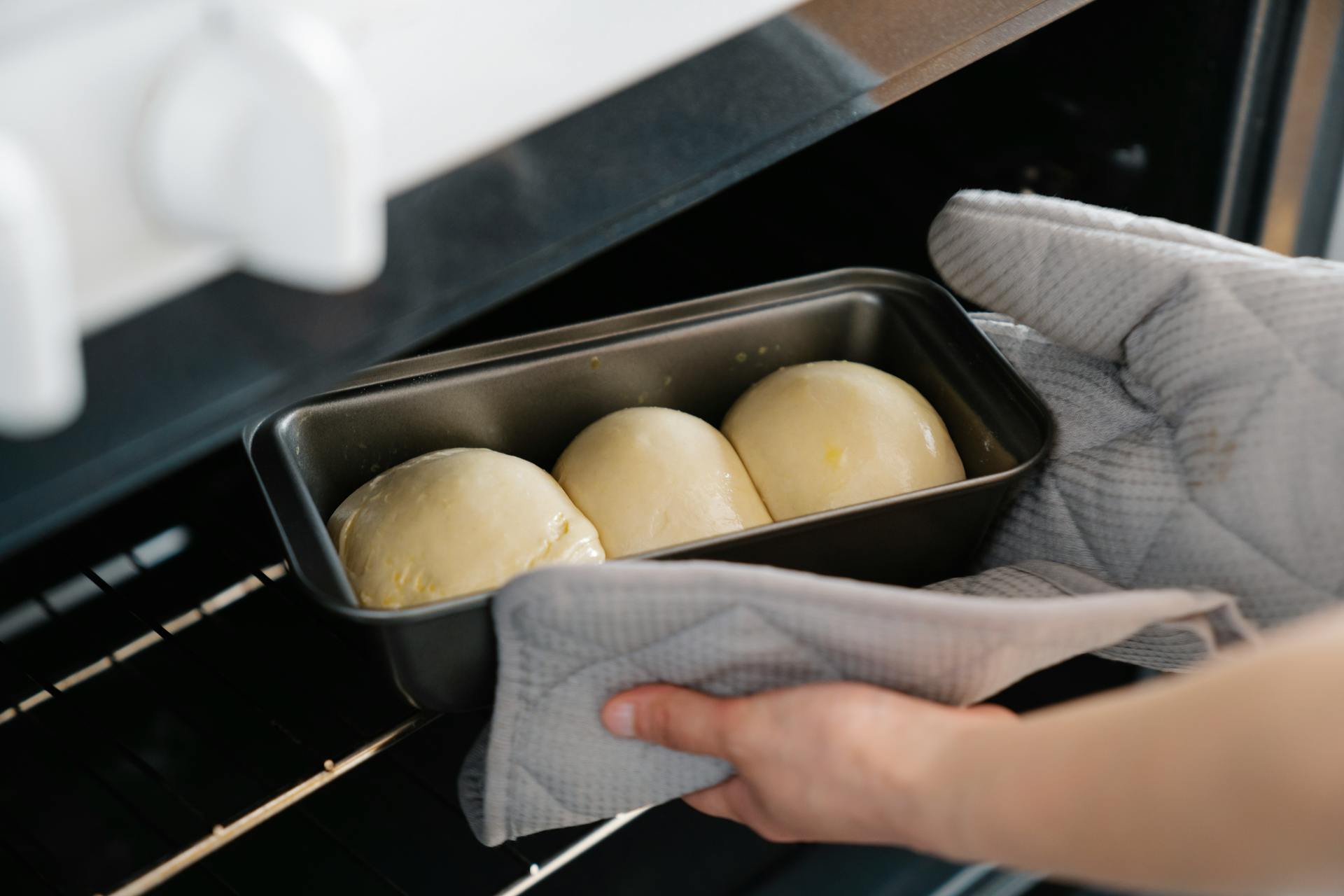
A person putting a tray of bread in the oven | Source: Pexels
Preheating your oven is like warming up before a workout. It's essential for peak performance! Skipping this step can throw off your cooking time and result in unevenly cooked food.
When your dish goes into a cold oven, it takes longer to reach the desired temperature, which can leave you guessing when it’s actually done.
So, always let your oven hit the right temperature before you begin.
Question #4: Do you wash your meat before you cook it?
- Yes
- No
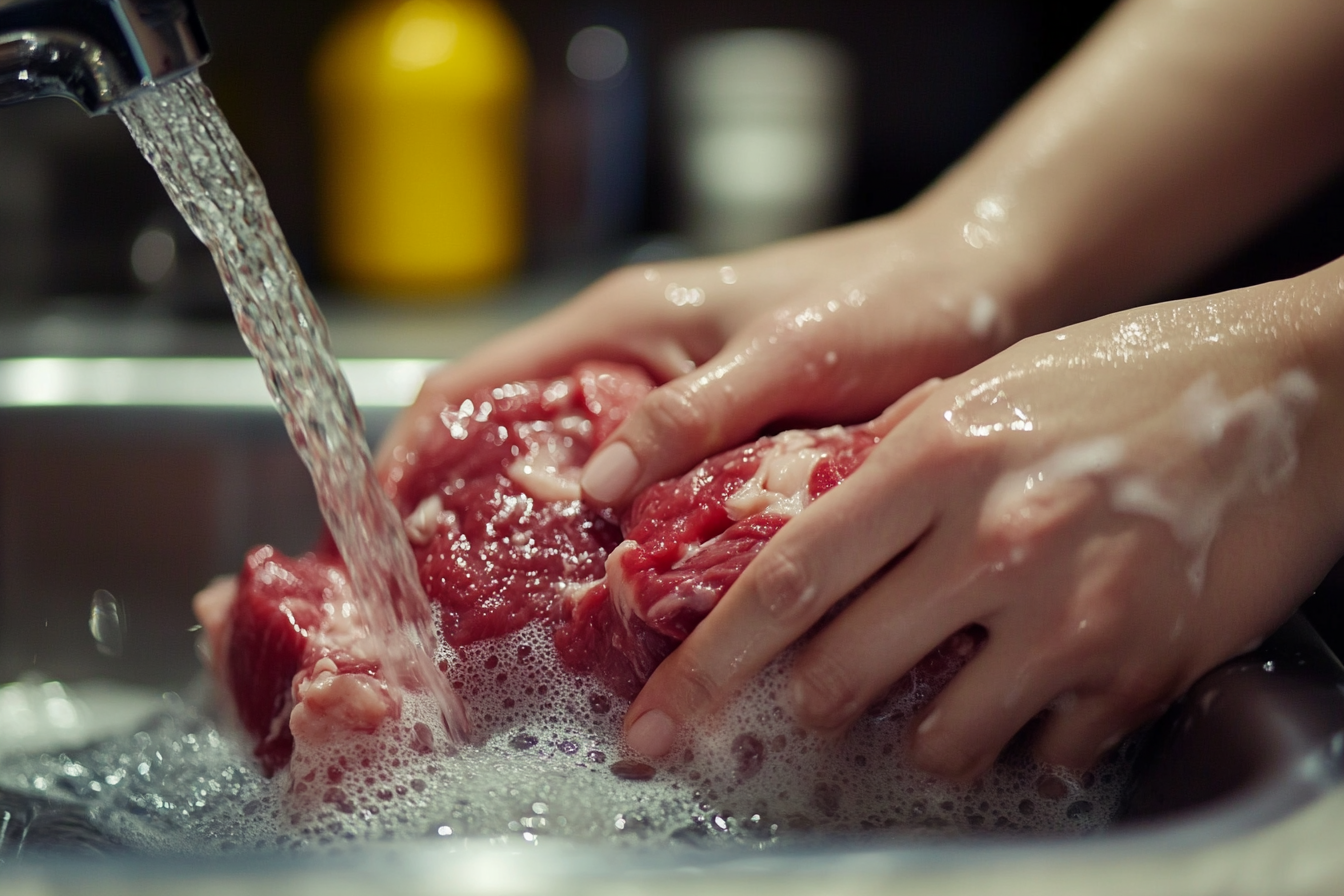
A woman rinsing meat in the kitchen sink | Source: Midjourney
Washing meat before cooking might seem like a good way to clean it, but it does more harm than good. When you rinse raw poultry, beef, or pork, you risk spreading bacteria all over your kitchen, including countertops, utensils, and other foods.
This increases the chance of cross-contamination, leading to foodborne illnesses. The truth is that cooking meat at the right temperature kills off any harmful bacteria, so there’s no need to wash it beforehand.
Question #5: Do you add dry spices to a dish after it's done cooking?
- Yes
- No
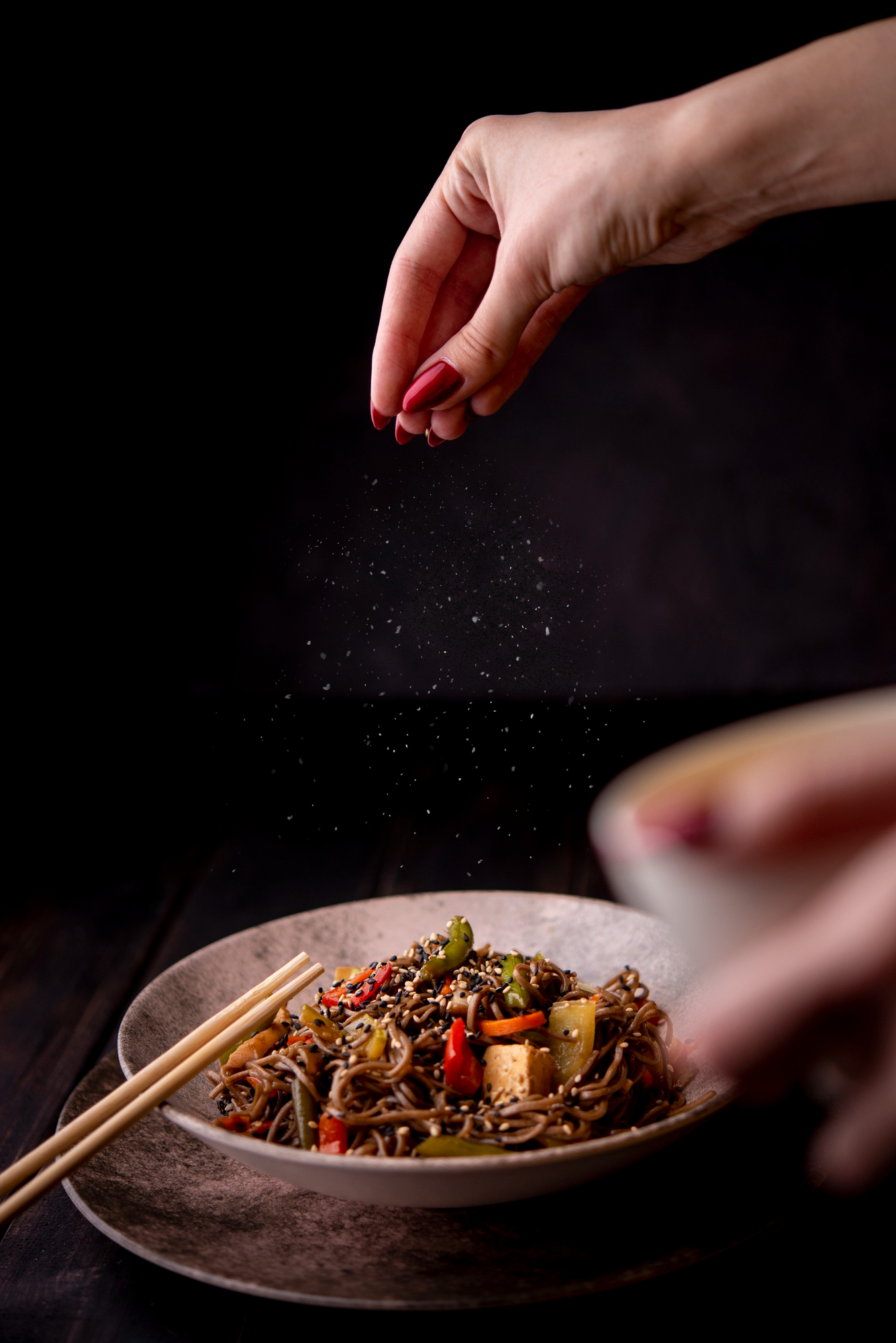
A woman sprinkling salt in a bowl of noodles | Source: Freepik
If you said yes, then you need to change your habits.
To truly unlock the rich flavors of dry spices, timing is everything! Adding them at the beginning of cooking gives these spices time to blend and soften, infusing your dish with their full aroma and taste.
For best results, let spices like thyme, oregano, and basil mingle with your ingredients from the start.
Question #6: Do you use a glass cutting board?
- Yes
- No
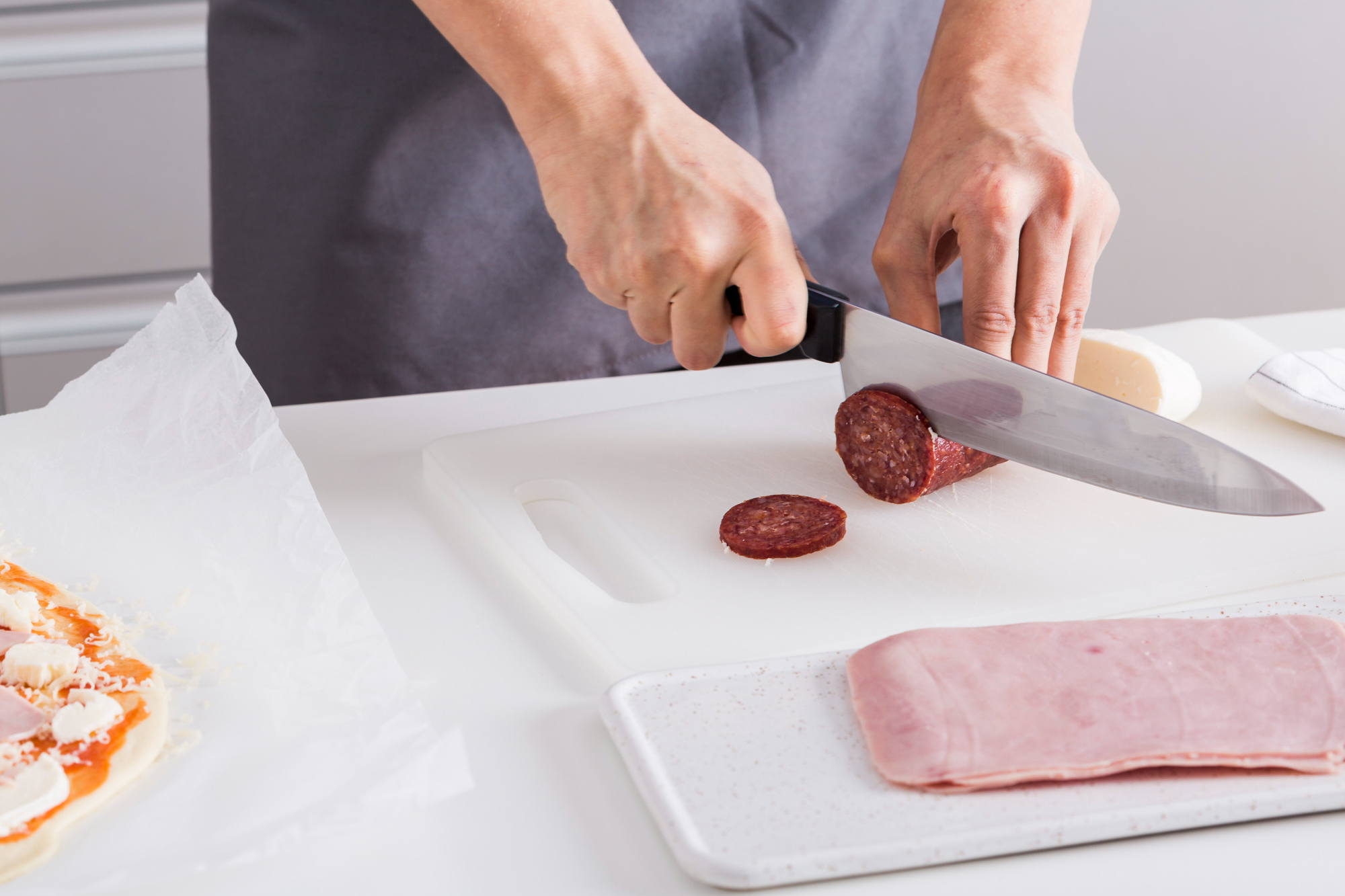
A woman cutting salami slices on a cutting board | Source: Freepik
We know glass cutting boards are stylish and make your kitchen look elegant, but they fall short in practicality. Why? Because they're fragile.
The risk of them shattering when dropped is much higher than that of plastic or wood boards, and the broken glass can scatter dangerously across your kitchen floor. So, it's always better to avoid glass boards.
Question #7: After cooking meat, do you cut it without letting it rest?
- Yes
- No
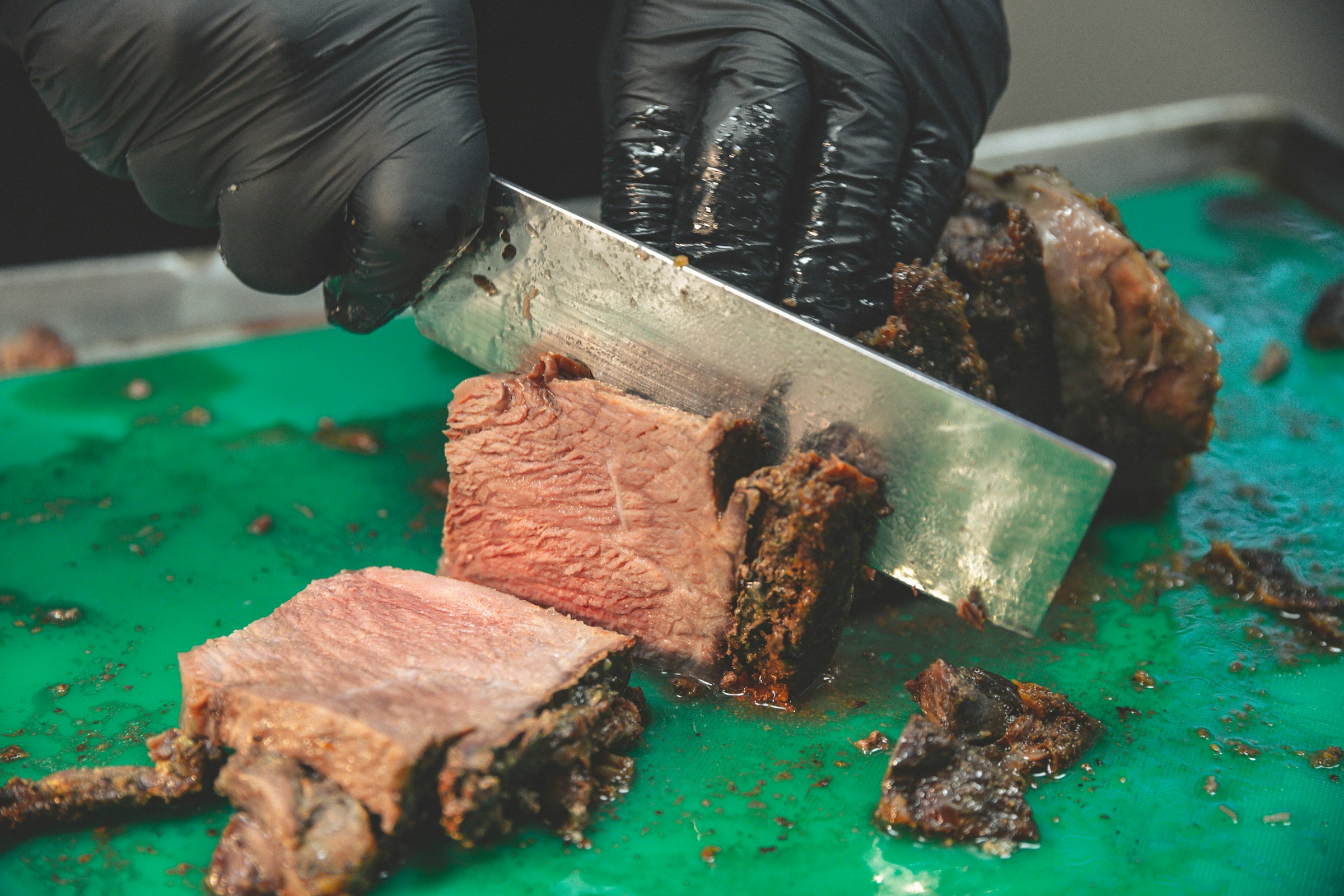
A person cutting a steak | Source: Unsplash
It might be tempting to slice into that perfectly cooked steak or roast as soon as it’s off the heat, but patience is key to preserving its flavor.
When meat or fish is allowed to rest after cooking, the muscle fibers relax, allowing the juices to spread throughout it. If you slice too soon, those flavorful juices will spill out onto your cutting board, leaving your meat drier and less tasty.
Question #8: Do you use boiling water for tea and coffee?
- Yes
- No
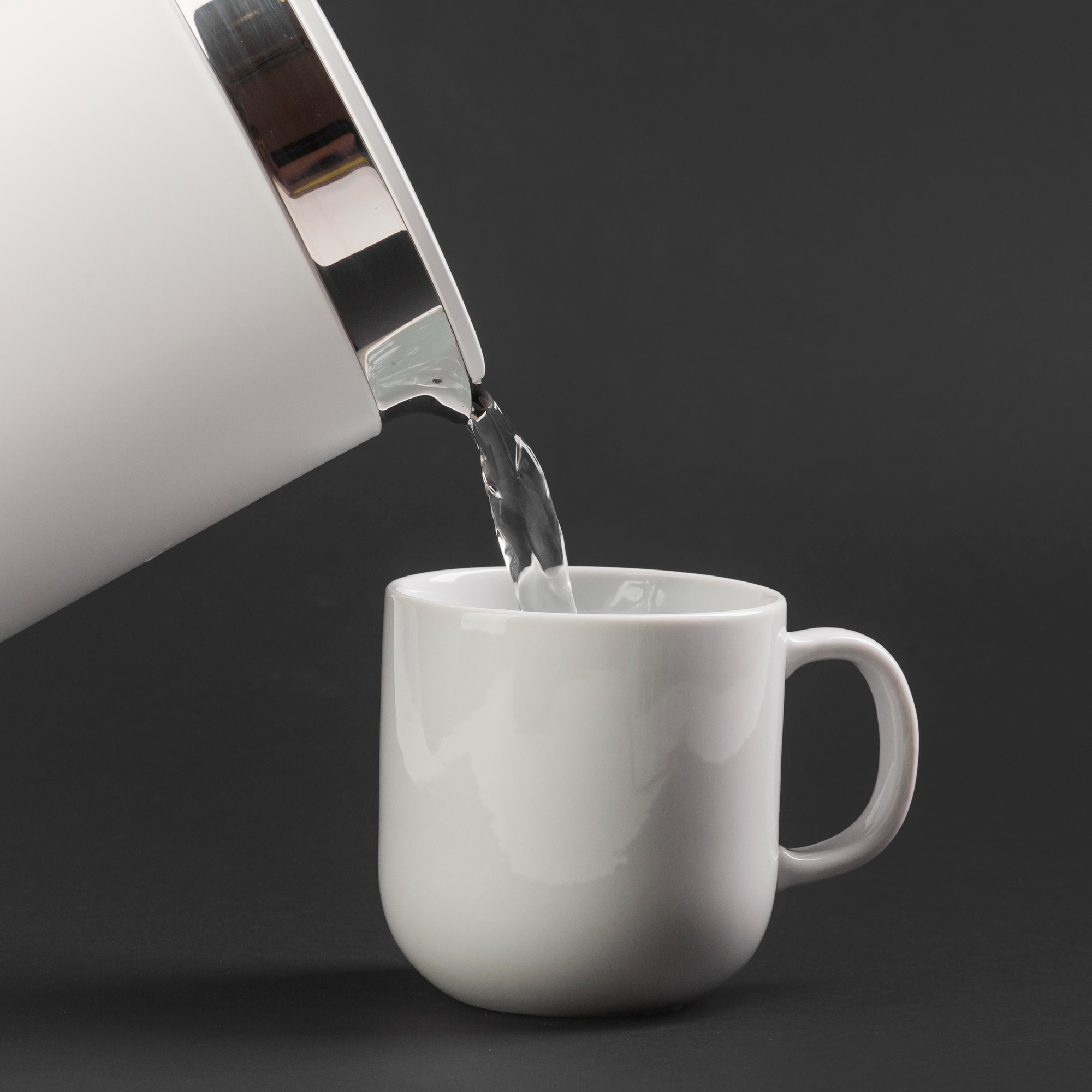
A person pouring water from a kettle | Source: Freepik
Boiling water might seem like the right choice for brewing tea or coffee, but it can actually do more harm than good. Pouring freshly boiled water over your tea leaves or coffee grounds can scald them, leading to a bitter, unpleasant taste.
Instead, let the water cool slightly after boiling, and then pour it. You'll be amazed to see the results.
Question #9: Do you rinse cooked pasta after draining it?
- Yes
- No
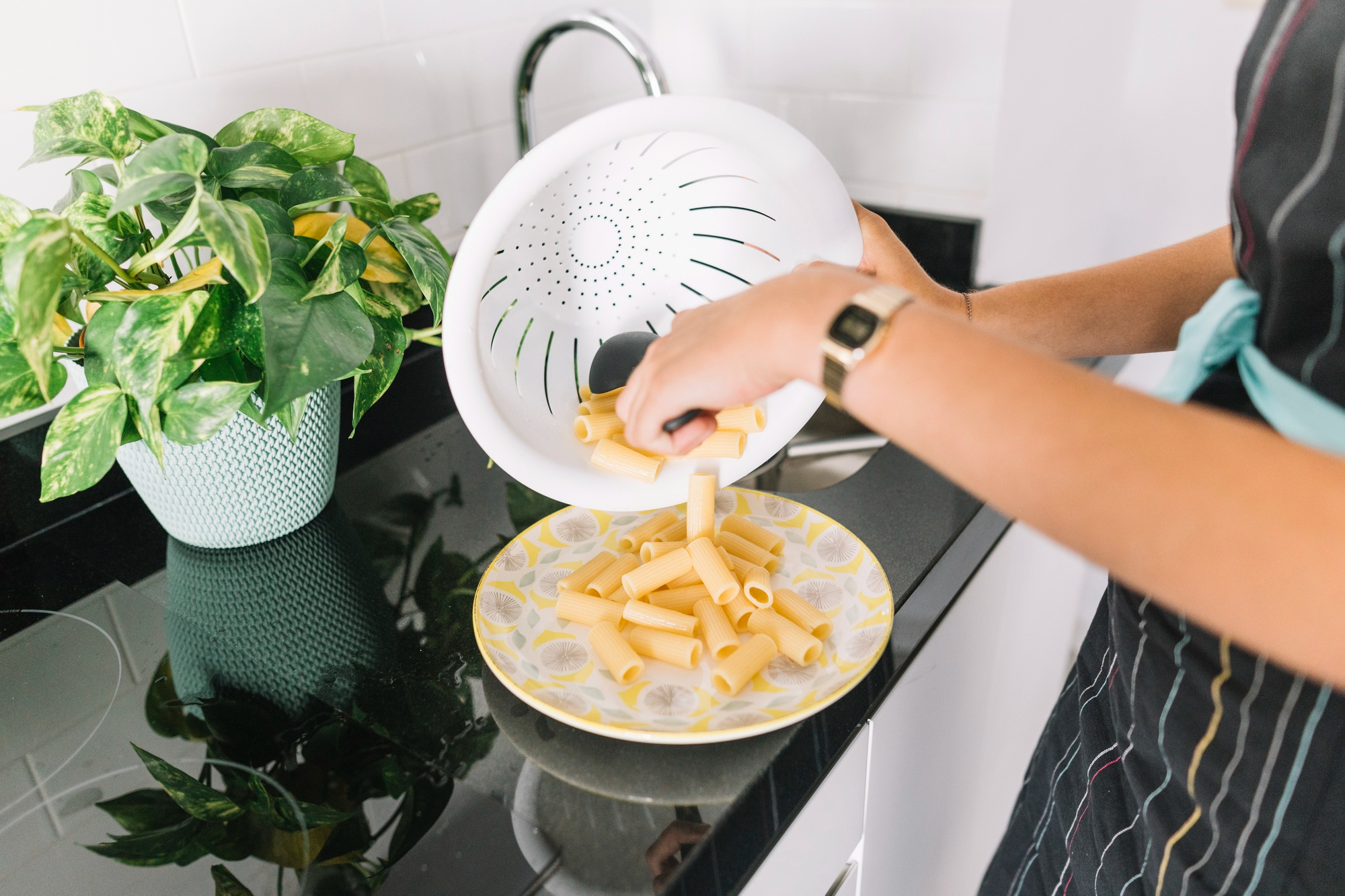
A woman pouring cooked pasta into a plate | Source: Freepik
Rinsing your pasta after cooking might seem like a good idea, but it can actually wash away the starchy goodness that helps sauce cling to your noodles. The starch left on the pasta after draining is what gives it that perfect, silky texture when mixed with your sauce.
The only time you should rinse pasta is when preparing a cold dish like pasta salad, where stopping the cooking process is essential. Otherwise, keep that starch intact for a more flavorful meal!
Question #10: Do you thaw raw meat on the kitchen counter?
- Yes
- No
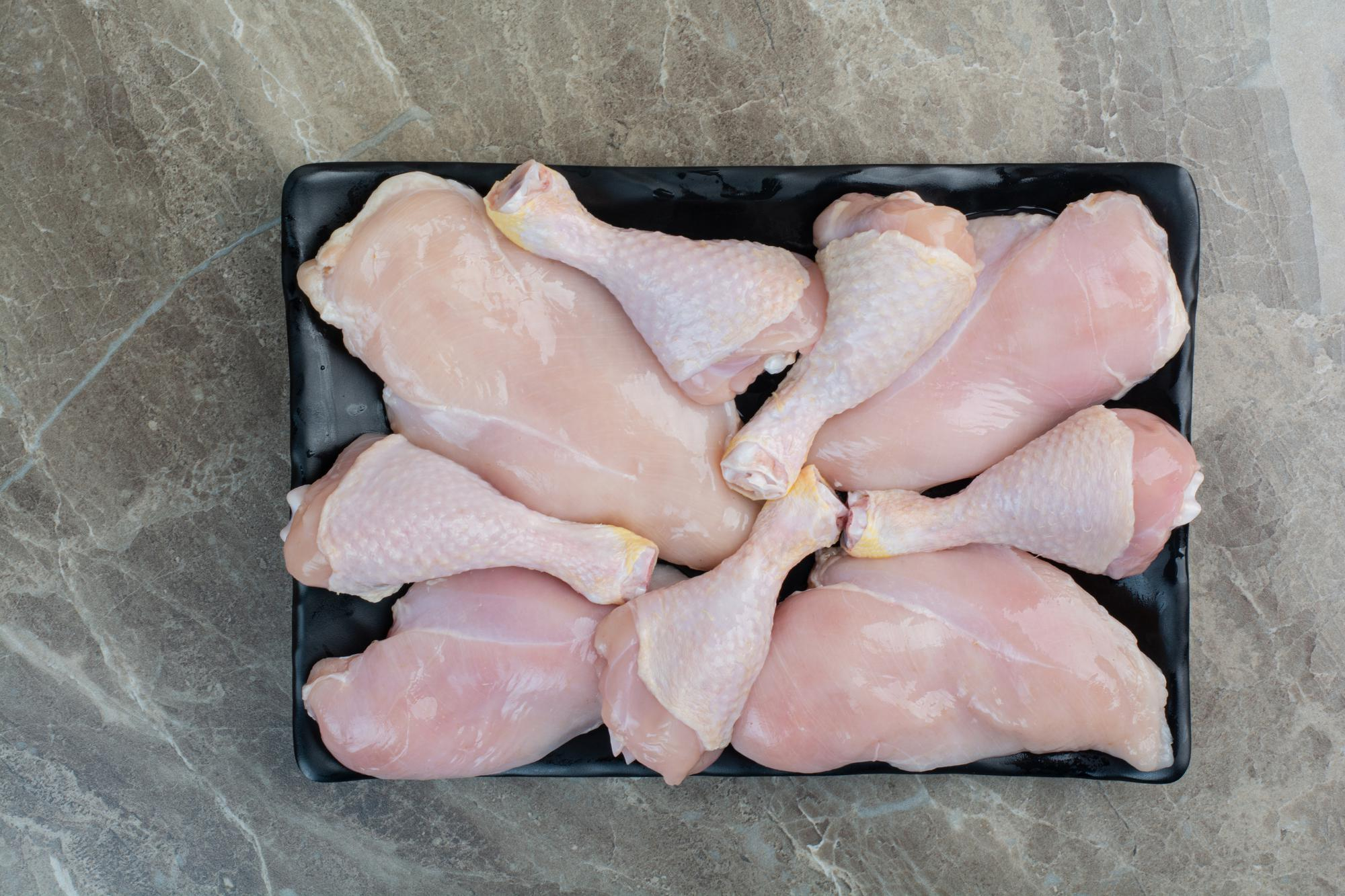
Chicken meat on kitchen counter | Source: Freepik
Thawing meat on the kitchen counter might seem convenient, but it’s a risky move that can compromise food safety. When frozen meat sits at room temperature for more than two hours, it enters the "danger zone" where bacteria can multiply rapidly. This can lead to foodborne illnesses, even if you cook the meat thoroughly afterward.
Instead, opt for safer methods like thawing in the refrigerator, under cold running water, or in the microwave.
Question #11: Have you ever put a cast-iron skillet in the dishwasher?
- Yes
- No
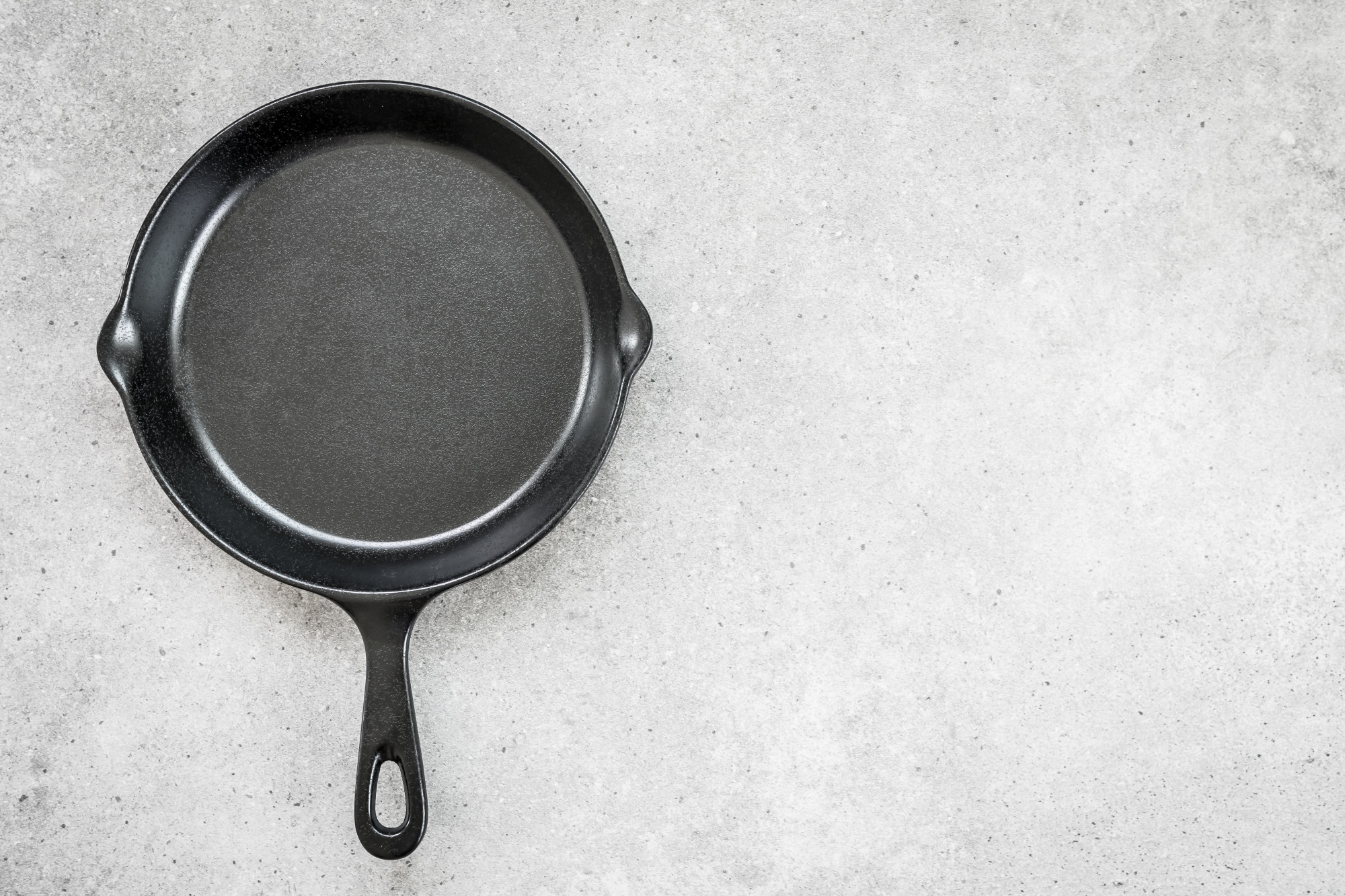
A cast iron skillet | Source: Freepik
Dishwashers might seem like the best option after a tiring day, but they’re no place for cast-iron skillets. The intense heat and detergent can strip away the skillet’s seasoning, causing it to rust. To keep your skillet in top shape, hand wash it gently and dry it thoroughly.
Question #12: Do you cut or consume your fruits and vegetables without washing them?
- Yes
- No
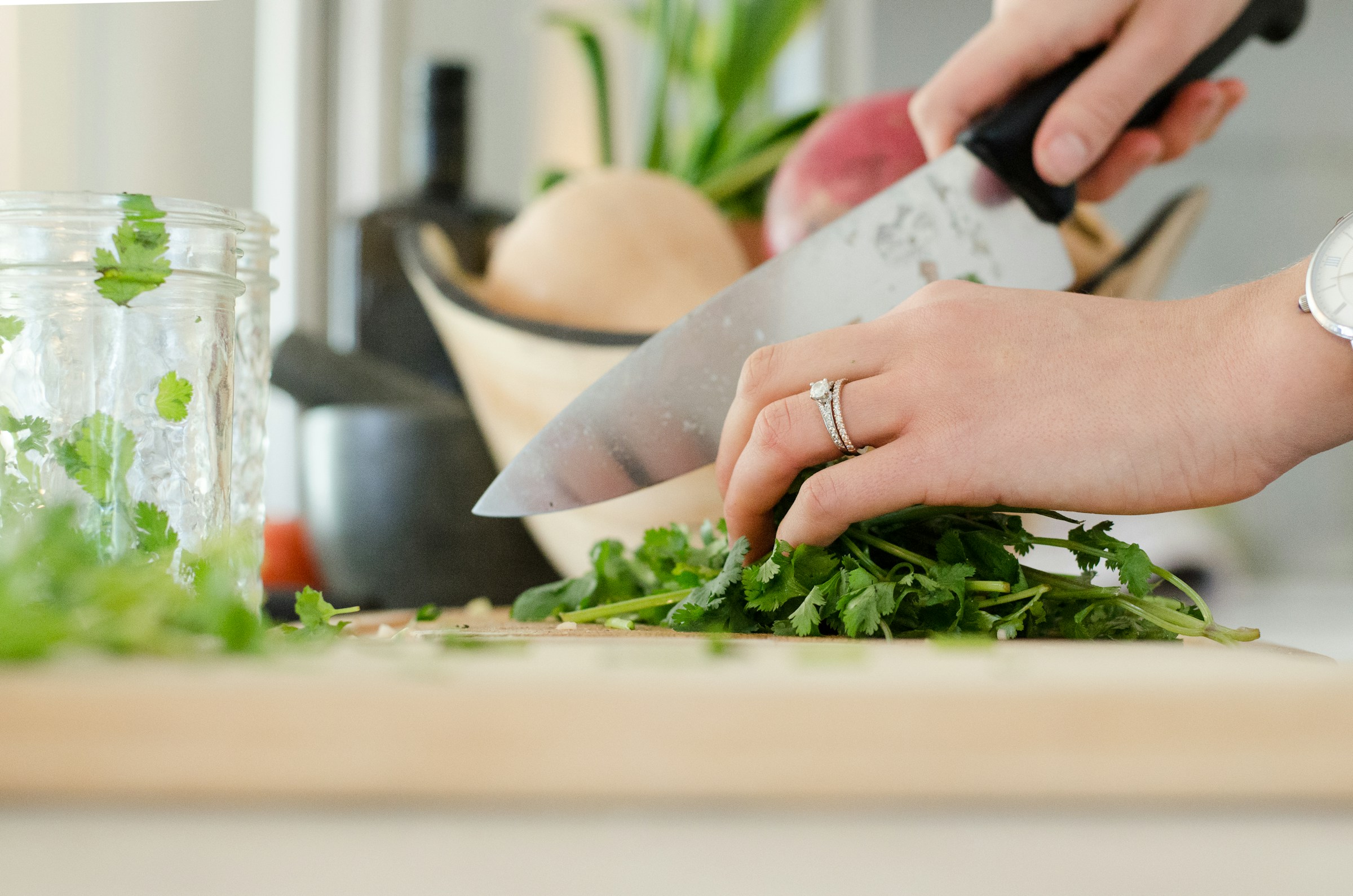
A woman chopping coriander | Source: Unsplash
Eating unwashed fruits and vegetables increases your risk of ingesting harmful bacteria and pesticides. It's best to rinse them under running water to reduce the chances of foodborne illnesses like norovirus. Even if you plan to peel them, washing them first is essential to prevent contaminants from transferring to the flesh during cutting.
Question #13: Do you keep your knives sharpened?
- Yes
- No
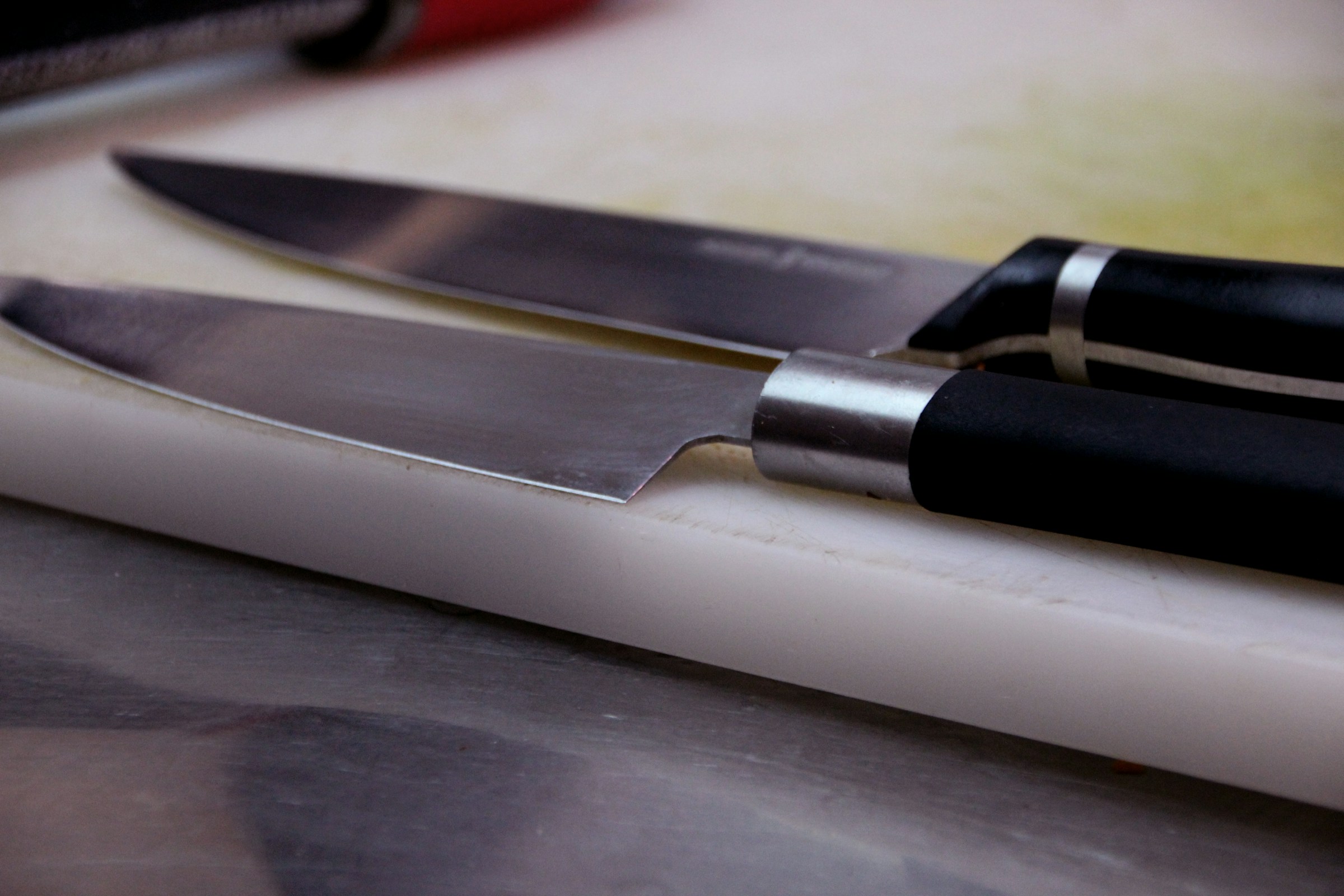
A close-up shot of knives | Source: Unsplash
While keeping your knives sharp is crucial, over-sharpening can damage the blade’s edge, making it duller over time. Knives should be sharpened only when necessary and to the correct angle to maintain their effectiveness.
Regular honing between sharpening helps keep the blade aligned and sharp, reducing the need for frequent sharpening and extending the life of your knives.
Question #14: Do you scoop the flour with a measuring cup and directly use it for your recipe?
- Yes
- No
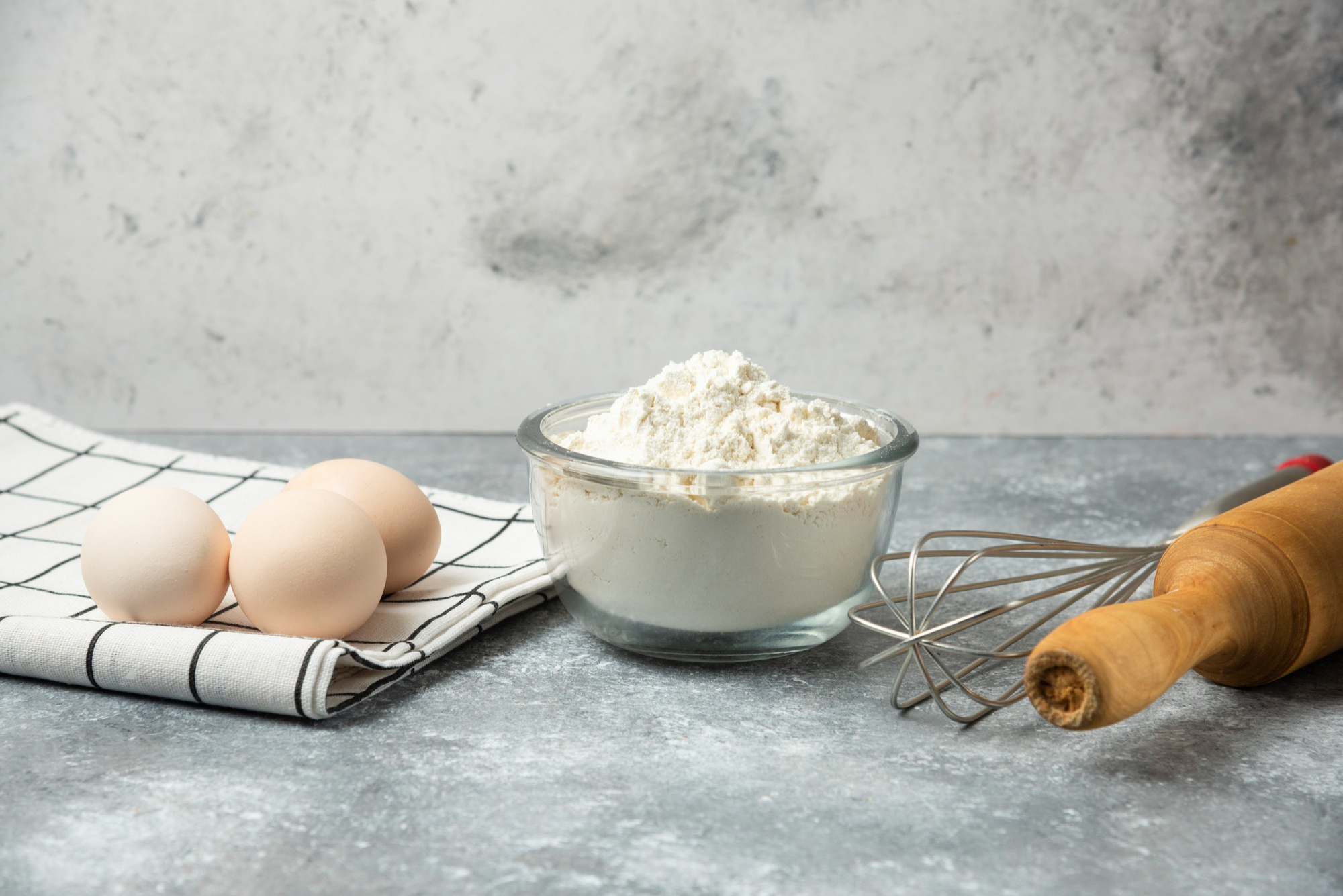
Flour in a bowl | Source: Freepik
Scooping flour directly with a measuring cup often results in using too much, as the flour becomes packed. This can add up to 50% more flour than needed, leading to dense, dry baked goods.
Instead, fluff the flour, spoon it into the measuring cup, and level it off with a knife to ensure accurate measurements and better baking results.
Question #15: Do you cook food at the highest heat setting?
- Yes
- No
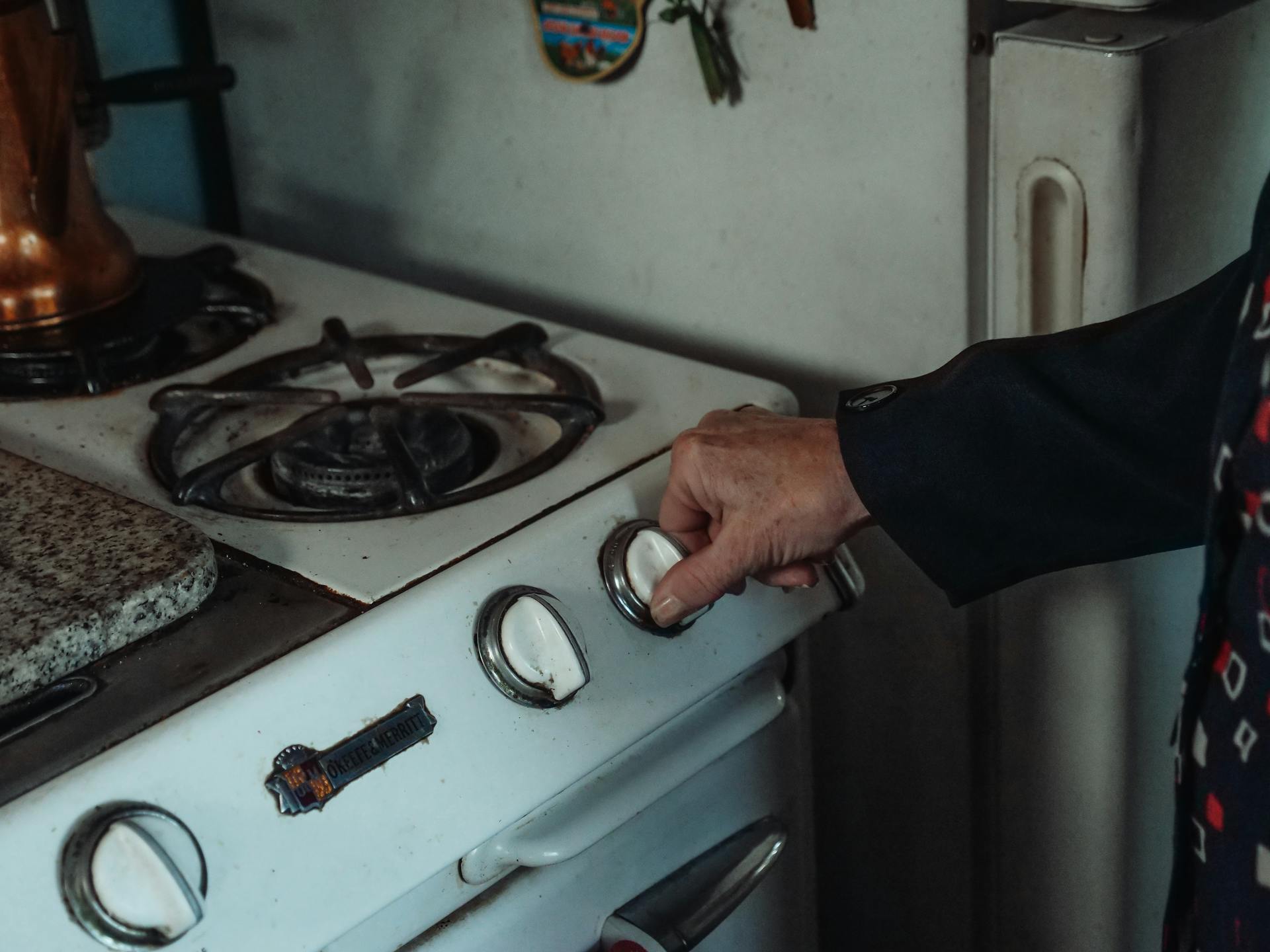
A person holding a stove knob | Source: Pexels
Cooking at the highest heat setting can lead to the formation of harmful compounds like trans-fatty acids (TFAs) and advanced glycation end-products (AGEs), which negatively affect health.
High heat also increases the risk of burning your food, resulting in a loss of flavor and nutrients. The best practice is to cook at moderate heat because it allows for more control and produces better, healthier results.
Question #16: Do you dispose of cooking oil by pouring it down the drain?
- Yes
- No
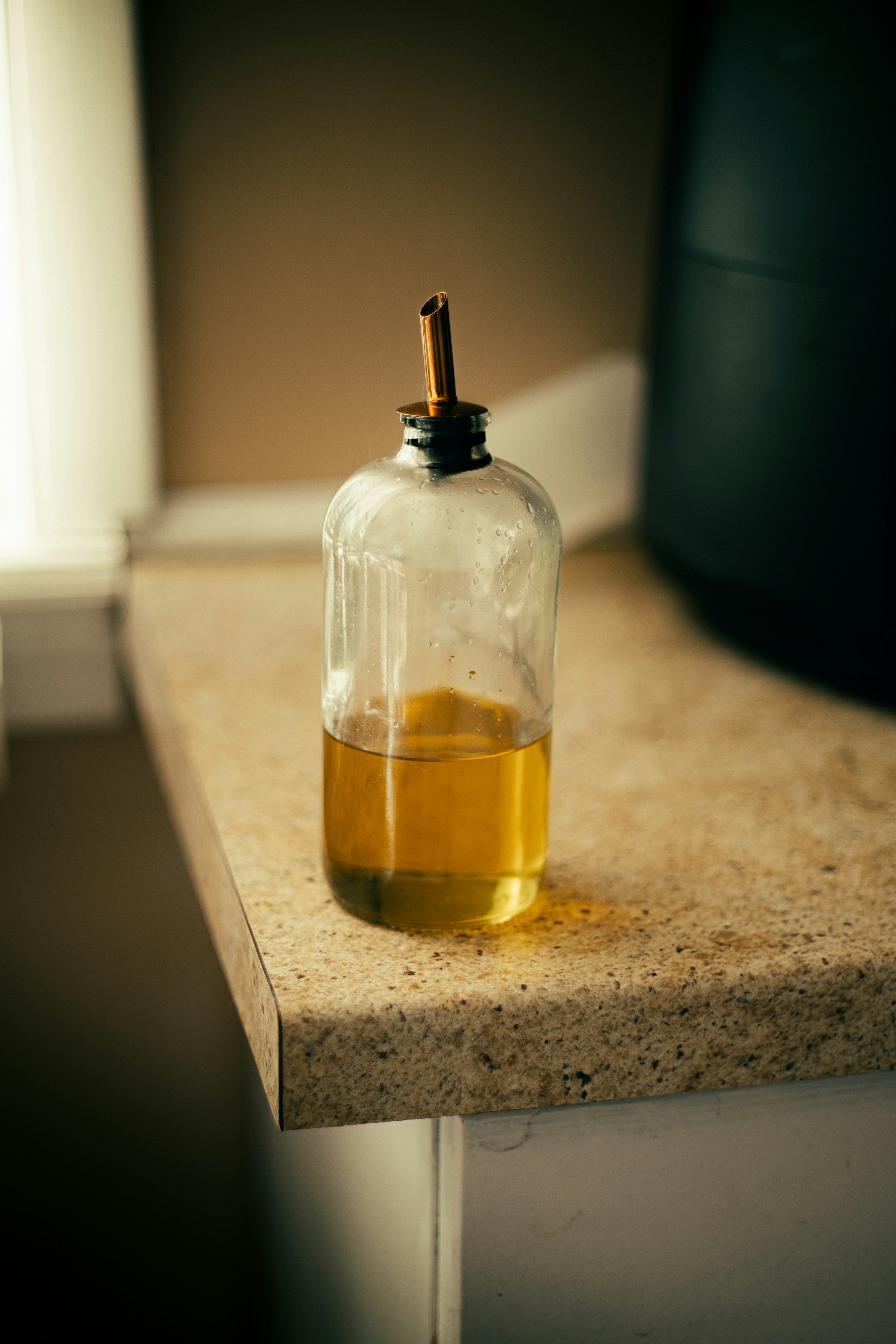
A bottle of cooking oil | Source: Unsplash
Pouring cooking oil down the drain can cause severe plumbing issues. As the oil cools, it solidifies and sticks to the pipes, leading to clogs, foul odors, and potential sewage backups.
Instead, allow the oil to cool, then pour it into a sealed container for disposal in the trash. This simple step helps maintain a healthy plumbing system and prevents costly repairs.
Question #17: Do you cook meat without tenderizing it?
- Yes
- No
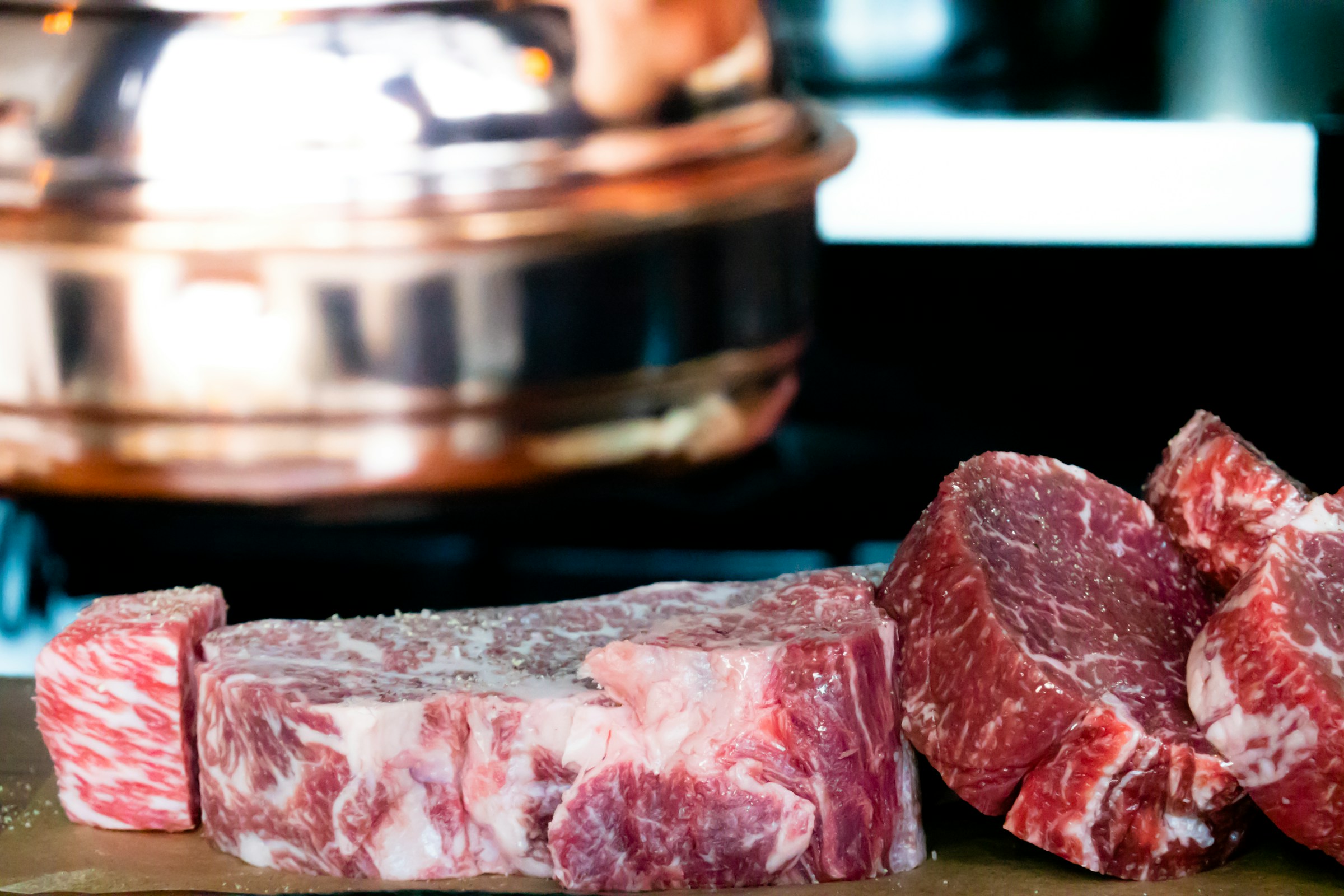
Sliced meat | Source: Unsplash
Skipping tenderization can leave meat chewy and less flavorful.
Tenderizing helps break down the muscle fibers, allowing marinades and seasonings to penetrate deeply, resulting in juicier, more succulent meat. It's also helpful for flattening chicken for dishes like chicken parmesan. So, you should always tenderize meat before marinating and cooking.
Question #18: Do you use one sponge to scrub dishes without ever cleaning it?
- Yes
- No
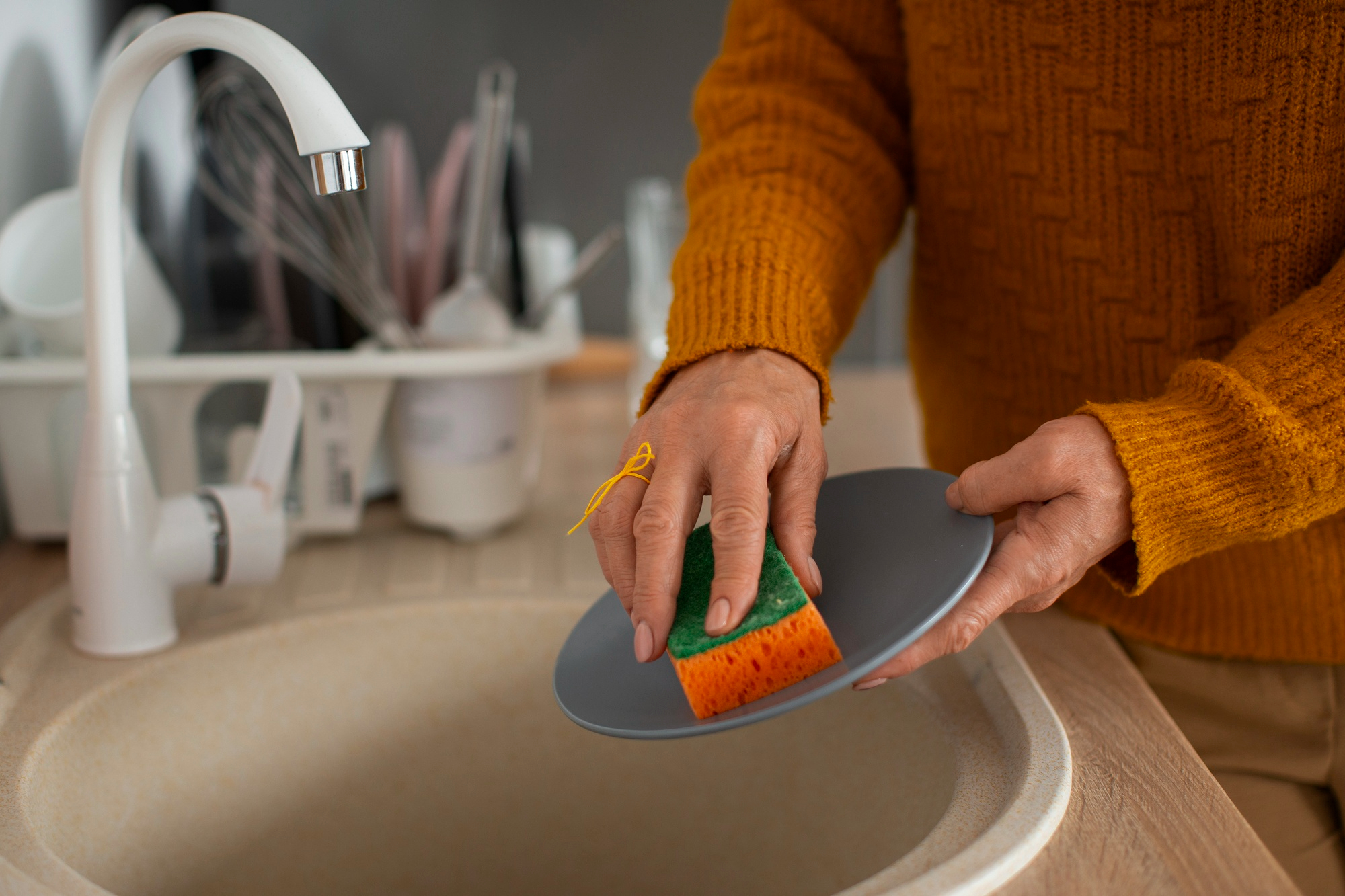
A woman cleaning a plate with a sponge | Source: Freepik
A kitchen sponge can harbor a surprising amount of bacteria if not cleaned regularly. While cleaning won't eliminate all germs, it can significantly reduce bacteria between replacements.
The most effective method is to wash the sponge daily in hot, soapy water and then microwave it while wet for two minutes. This practice helps maintain a more hygienic cleaning tool.
Question #19: Do you love eating raw cookie dough?
- Yes
- No
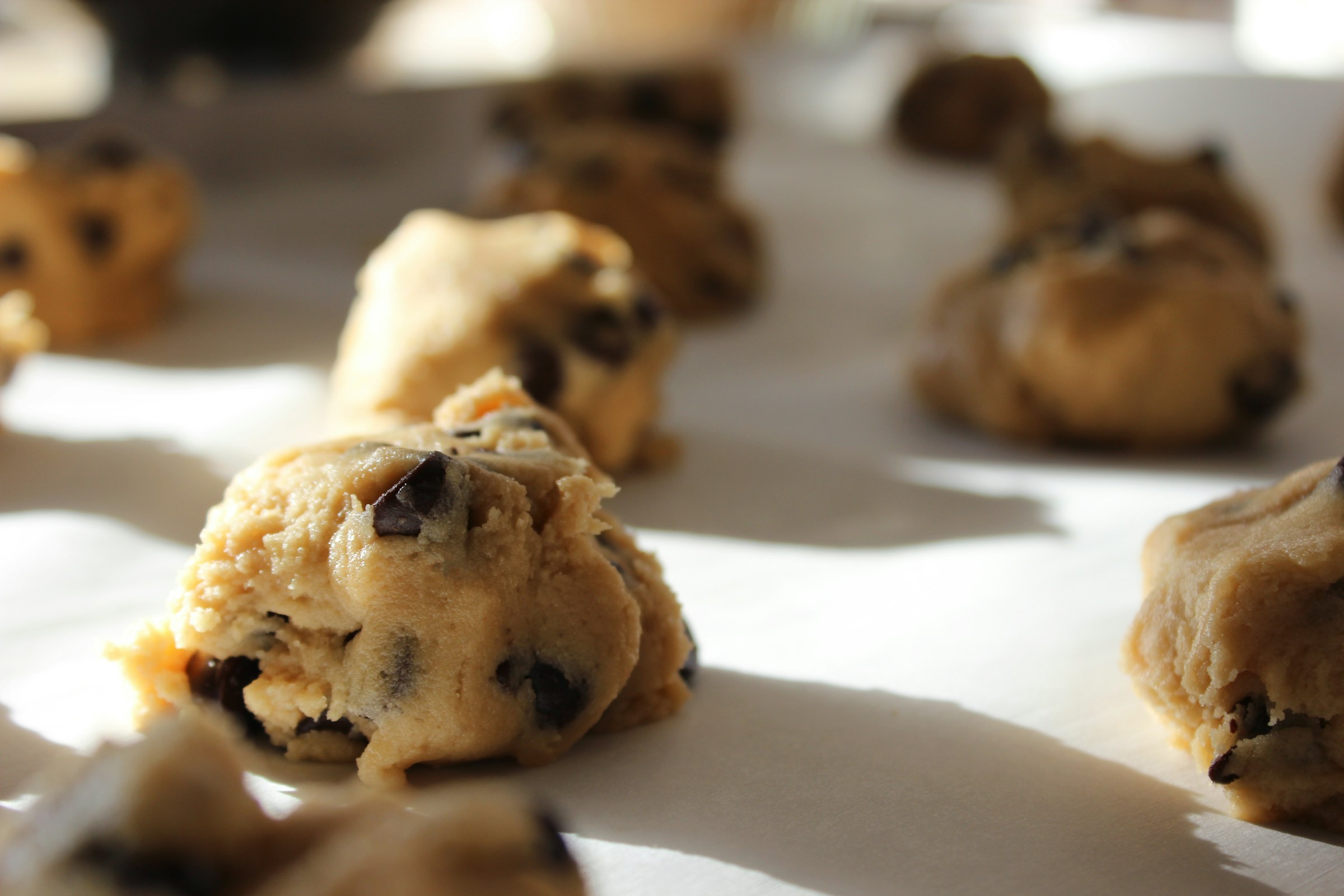
Close-up of cookie dough | Source: Unsplash
Raw cookie dough is undeniably tempting, but it carries risks. Unbaked dough or batter made with raw flour can contain harmful germs that are only killed when cooked or baked.
As a result, consuming raw dough can lead to foodborne illnesses. It's safer to wait until those cookies are fully baked before indulging.
Question #20: Do you use metal utensils to cook in non-stick pans and pots?
- Yes
- No
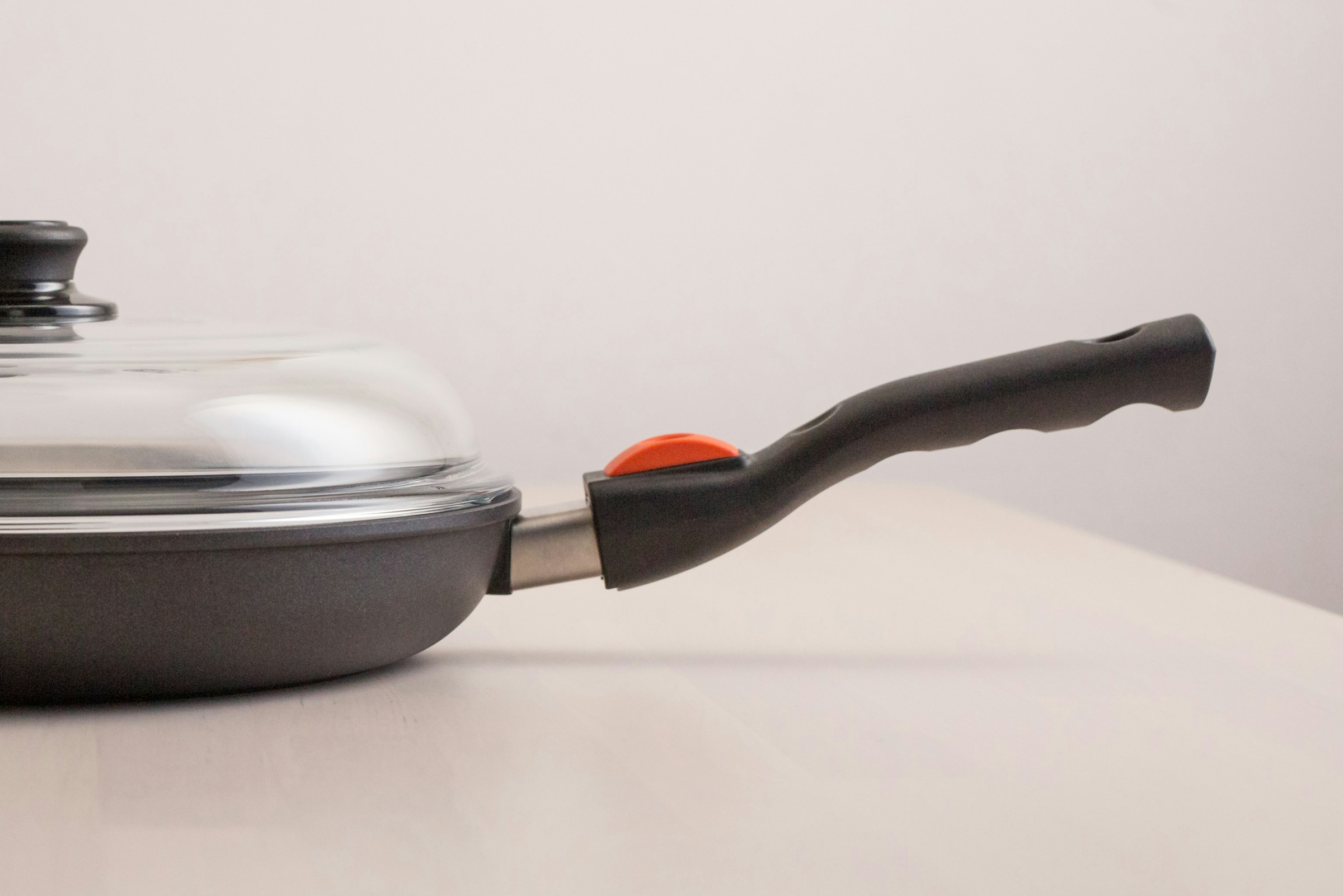
A close-up shot of a non-stick pan | Source: Unsplash
Using metal utensils on non-stick cookware can scratch and damage the coating, causing food to stick and making the pan harder to clean. Worse, you might end up ingesting small flakes of the non-stick coating.
To preserve your cookware and ensure safe cooking, opt for silicone, plastic, or wooden utensils, which are gentle on non-stick surfaces.
Question #21: Do you follow the 5-second rule?
- Yes
- No
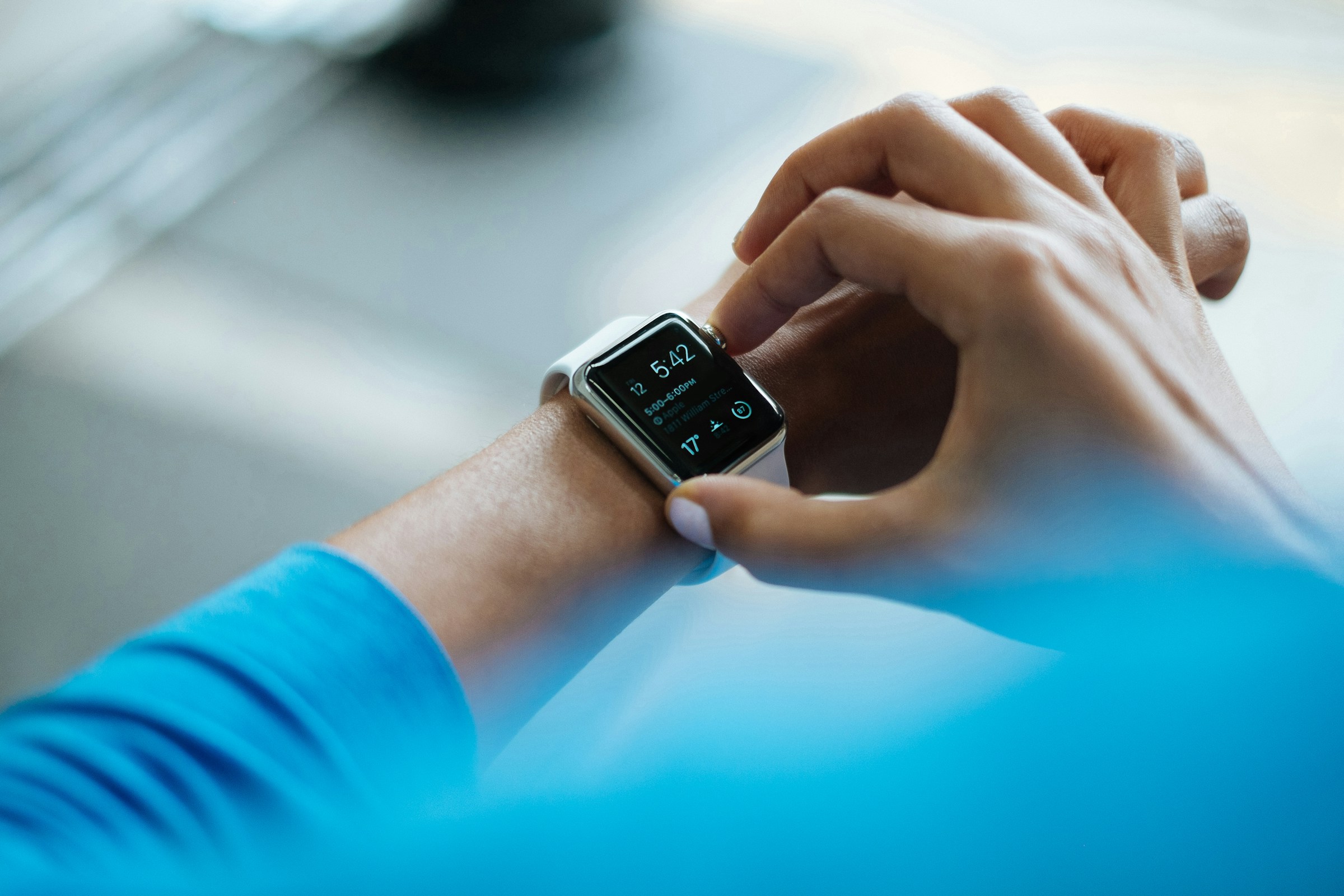
A person holding their smartwatch | Source: Unsplash
The "5-second rule" is a popular belief that food is safe to eat if picked up within five seconds of dropping it on the floor. However, this rule isn’t based on science. When food hits the floor, harmful microorganisms can transfer to it instantly, increasing the risk of foodborne illness.
While it’s tempting to believe a quick pick-up is safe, it’s better to err on the side of caution and discard any dropped food.
Now that you’ve completed the quiz, count how many questions you answered with a "Yes."

A woman looking at a paper in her hand | Source: Midjourney
Evaluate your cooking skills using the scoreboard below:
0-5: You’re a Master Chef! You’ve got excellent cooking habits and know your way around the kitchen like a pro.
6-10: You’re doing well, but there’s room for improvement. A few tweaks here and there can elevate your culinary game.
10-14: You may need to brush up on some cooking basics, but don’t worry, there’s always time to improve and develop better habits.
15-21: It’s time to enhance your skills! But don't feel bad. With some practice and learning, you'll be cooking like a pro in no time.
Remember, cooking is a journey, and every mistake is a step toward mastering your culinary craft!
If you enjoyed taking this quiz, here's another one you might like: Looking for a quick brain workout? These thought-provoking challenges will test your ability to think critically and solve problems. Ready to see how sharp your mind really is? Dive in and discover how well you can tackle these puzzles!
